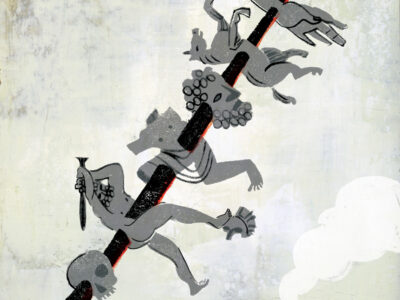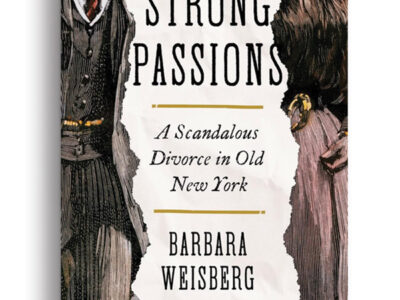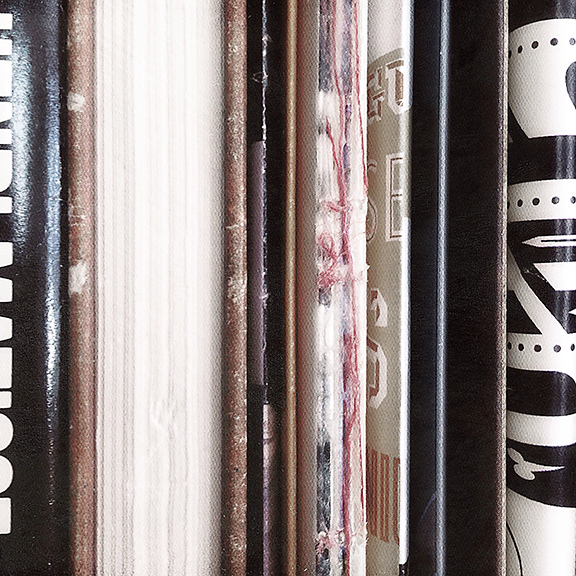Katie Haegele | A down-to-earth single girl, her flighty friends, a bothersome boss, and at least one guy who’s causing her trouble.
Some combination of those elements, or ones like them, are the basic ingredients of your average chick-lit novel. Since Bridget Jones appeared on the scene in 1998, there’s been an explosion in the marketplace of so-called chick-lit books—you’ve seen them, those pastel-colored volumes with high heels and handbags on the cover, on the “beach reads” table at Barnes & Noble. Last year they accounted for more than $71 million of the $23 billion publishing industry.
Critics of the genre call the books nothing more than fluff (maybe because they always have a happy ending) or, worse, say they are reviving retro attitudes about women’s priorities that were better off dead (probably because, most often, the happy ending depends on getting the guy).
But isn’t it OK to enjoy a nice juicy novel? The debate isn’t too far removed from other lifestyle issues modern women have to deal with. Like, can a woman be taken seriously while tripping around the city in stilettos? Or, in this case, can a book be taken seriously even though it’s wearing a hot pink cover?
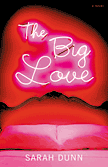
By Sarah Dunn C’91.
Little, Brown, 2004. $23.95.
In a word: Yes. It can. And The Big Love, the debut novel by Sarah Dunn C’91, is one good example.
Alison Hopkins, our chatty, engaging narrator, opens the book by describing how her boyfriend of eight years has just dumped her in a beyond-terrible way. (Get this: He ran out to the store during a dinner party for more mustard and called her from a payphone to say he was in love with someone else, and he wasn’t coming home.)
Alison is a quippy, likable narrator who brings us into her world as a 32-year-old Ivy League alumna who lives in Center City Philadelphia and writes a column about her love life for an alt-weekly newspaper. Lest the reader worry that The Big Love is shaping up to be a kind of second-city Sex in the City, Alison deals with that up-front: “I feel I should point out that I became the kind of columnist I became before it was a cliché, before the Suddenly Susan-ness of it all hit the culture full-force, before the whole thing became boring, silly, and obvious.”
But the reader needn’t have worried: as a women’s fiction protagonist, Alison avoids the cliché in other, more interesting, ways. For one thing, she was raised as an evangelical Christian, and much of the inner turmoil she’s forced to confront when her boyfriend cheats and leaves is how she’s going to reconcile the black-and-white values of her family’s faith with the very gray areas of love and relationships in the modern world, and boyfriends who cheat and leave and, sometimes, come back.
Dunn is an experienced columnist herself (as well as a writer for such sit-coms as Murphy Brown and Spin City), and her book is at its snappiest, funniest, and most insightful when it reads less like a novel and more like really good column writing. To wit, she delivers social insights in the form of clever pet theories, like “toasting is the new prayer,” and her notion that all female friendships fall into the same paradigm: one person gets to be the girl and the other one has to be the boy. And extended riffs like these occasionally touch down on more weighty territory. When Alison concedes that her quest for romantic love may be tangled up in her search for her lost faith in God, she brings to mind some of Graham Greene’s conflicted characters, and the writing goes from insightful to wise.
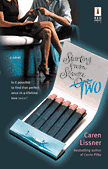
By Caren Lissner C’93.
Red Dress Ink, 2004. $12.95.
Like lots of chick-lit heroines, the protagonist in Starting From Square Two, the second novel by Caren Lissner C’93, is a single twentysomething living in New York City. But unlike most women her age, she’s a widow. And a year and a half after losing her husband in a car accident, she finds herself reluctantly “back in the game,” with her two closest friends, both Rules-following dating veterans, as her accomplices.
As she did with the protagonist of her first novel, Carrie Pilby, Lissner gives us a character with an inner world that’s quirky, gently intelligent, and warm—cozy, even—who at the same time provides sharp observations about the world around her. (At a coffee shop, the newly dating Gert can’t help but notice that while both men and women were reading the paper, it was the women who kept “peering over the top, to see who else might be there.”)
The book digs deeper than that, too. Through Gert, who attends a widow support group and trolls the Internet looking for people who might understand what she’s going through, Lissner gets across a real understanding of grief, down to the first moment since his death that Gert is able to acknowledge some of her husband’s flaws.
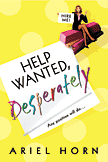
By Ariel Horn C’02.
Avon, 2004. $12.95.
Help Wanted, Desperately, the debut novel by Ariel Horn C’02, fits more tidily into the genre. Horn tells the confessional-sounding story of Alexa, an overachieving, soon-to-be college grad who wants more than anything to move to New York and “get started” with her life. But her attempts to get there (unsurprisingly to the over-21 set) are a lesson in humility.
With its sense of humor and immediacy, Horn’s writing feels youthful and fresh. But the book, replete with Bridget Jones-style notes-to-self, doesn’t always balance out Alexa’s quirky asides with more meaty, story-driving stuff.
Whenever novels lean on the cheaper conventions of their genre, they’re weaker for it, and chick lit is no exception. When Dunn’s Alison compares dating a divorced woman to buying a used sweater or frets about becoming an “old maid,” for instance, it’s disheartening, in part because it’s clear from the rest of her book that Dunn is much smarter, much fuller, than that.
Still, it’s too bad that women are made to feel defensive about their choice in reading. (As a letter-writer to a recent issue of Utne put it: “I’m … a former class-action attorney, a literate and concerned member of the world community, and guess what? I like to read chick lit.”) The truth is, much of “women’s fiction” isn’t easy to pick out from more “literary” novels.
Actually, through her character Alison, Dunn nails the distinction nicely. She might have aspired to be Dorothy Parker as a kid, but growing up in Arizona, all they got was Nora Ephron. She was delighted to learn that Nora Ephron wanted to be Dorothy Parker when she grew up. Maybe that’s a better, if clunkier, rubric for these smart, sassy books: Dorothy Parker by way of Nora Ephron. Because let’s not forget that, despite the Hollywood-friendly glossiness of her work, Nora Ephron has actually always been quite good.
Katie Haegele C’98 has written for The Philadelphia Inquirer, the fiction anthology Women Behaving Badly, and other publications.


